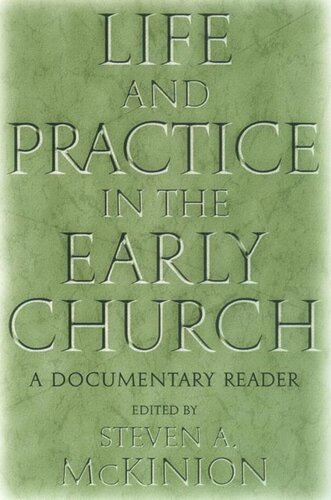

Most ebook files are in PDF format, so you can easily read them using various software such as Foxit Reader or directly on the Google Chrome browser.
Some ebook files are released by publishers in other formats such as .awz, .mobi, .epub, .fb2, etc. You may need to install specific software to read these formats on mobile/PC, such as Calibre.
Please read the tutorial at this link: https://ebookbell.com/faq
We offer FREE conversion to the popular formats you request; however, this may take some time. Therefore, right after payment, please email us, and we will try to provide the service as quickly as possible.
For some exceptional file formats or broken links (if any), please refrain from opening any disputes. Instead, email us first, and we will try to assist within a maximum of 6 hours.
EbookBell Team

0.0
0 reviewsLife and Practice in the Early Church brings together a range of primary texts from the church's first five centuries to demonstrate how early Christians practiced their faith. Rather than focusing on theology, these original documents shed light on how early believers "did church," addressing such practical questions as, how did the church administer baptism? How were sermons delivered? How did the early church carry out its missions endeavors?
Early Christian writings reveal a great deal about the tradition, as well as the wider culture in which it developed. Far from being monolithic, the documents which present the voices of the early church fathers in their own words demonstrate variation and diversity regarding how faith was worked out during the patristic period. The texts illuminate who was eligible for baptism, what was expected of worshippers, how the Eucharist was celebrated, and how church offices and their functions were organized. Contextual introductions explain practices and their development for those with little prior knowledge of Christian history or tradition. The pieces included here, all in accessible English translation, represent such sources as Justin Martyr, Tertullian, the Cappadocians, Cyril of Jerusalem, John Chrysostom, and Augustine.